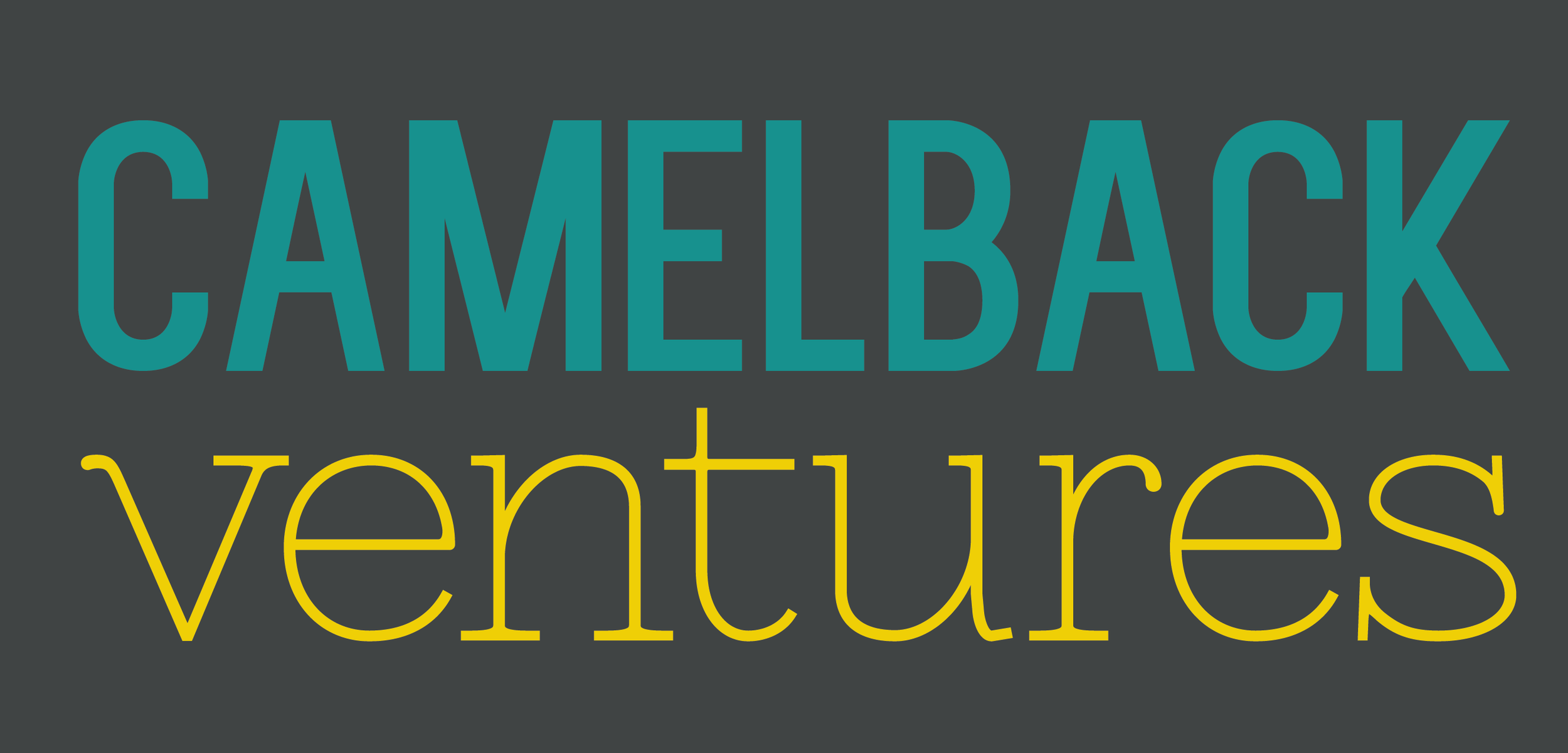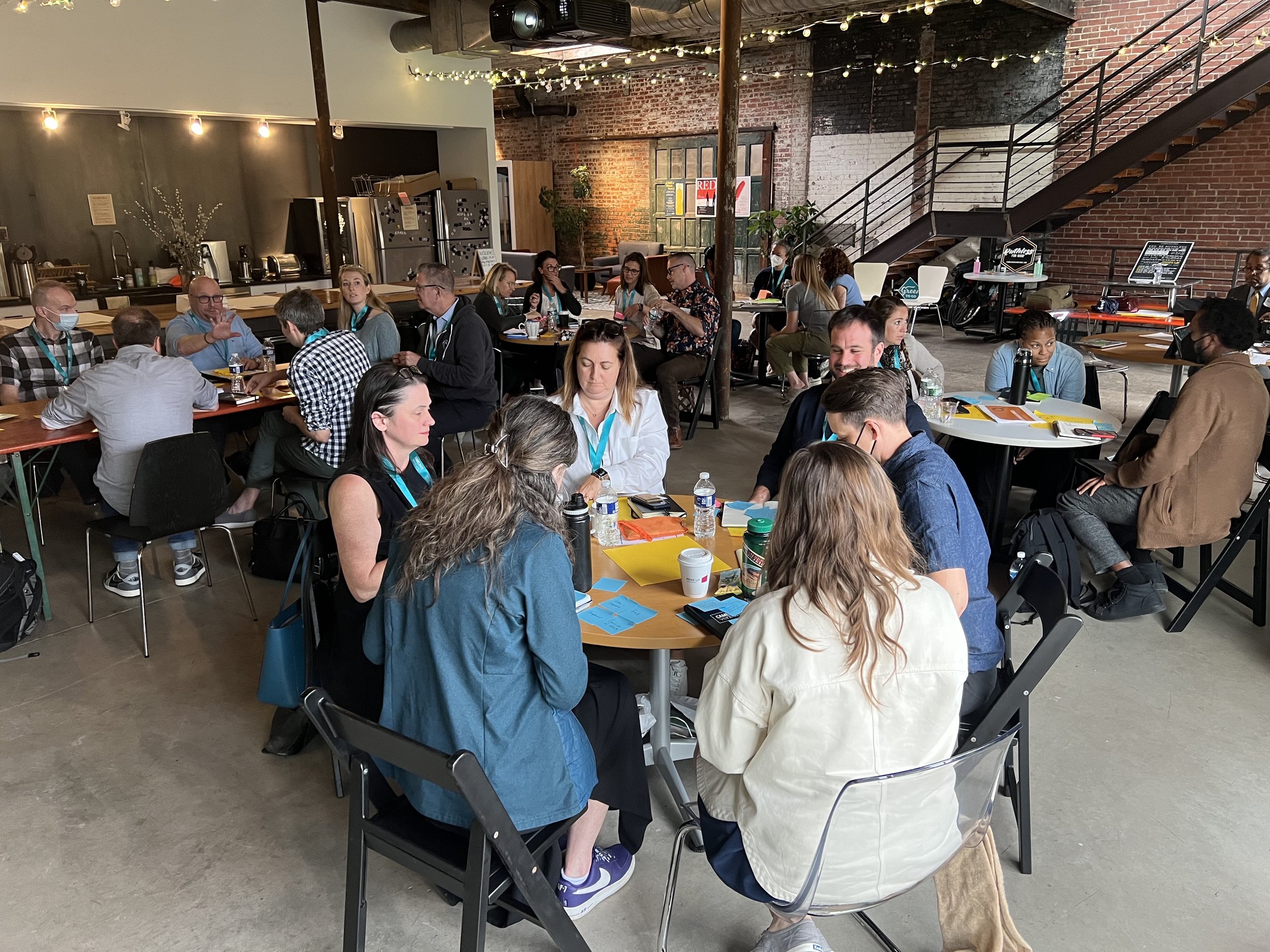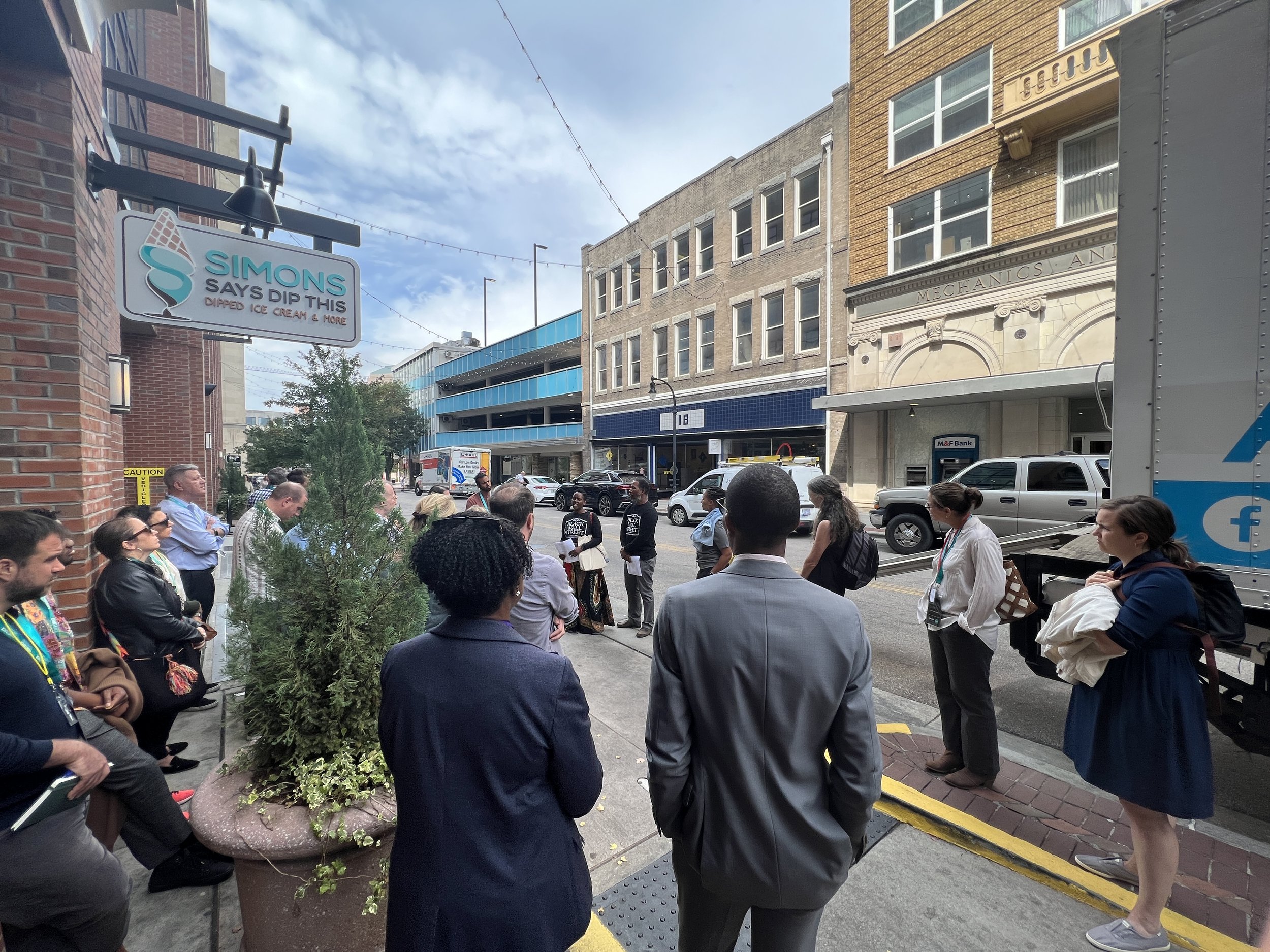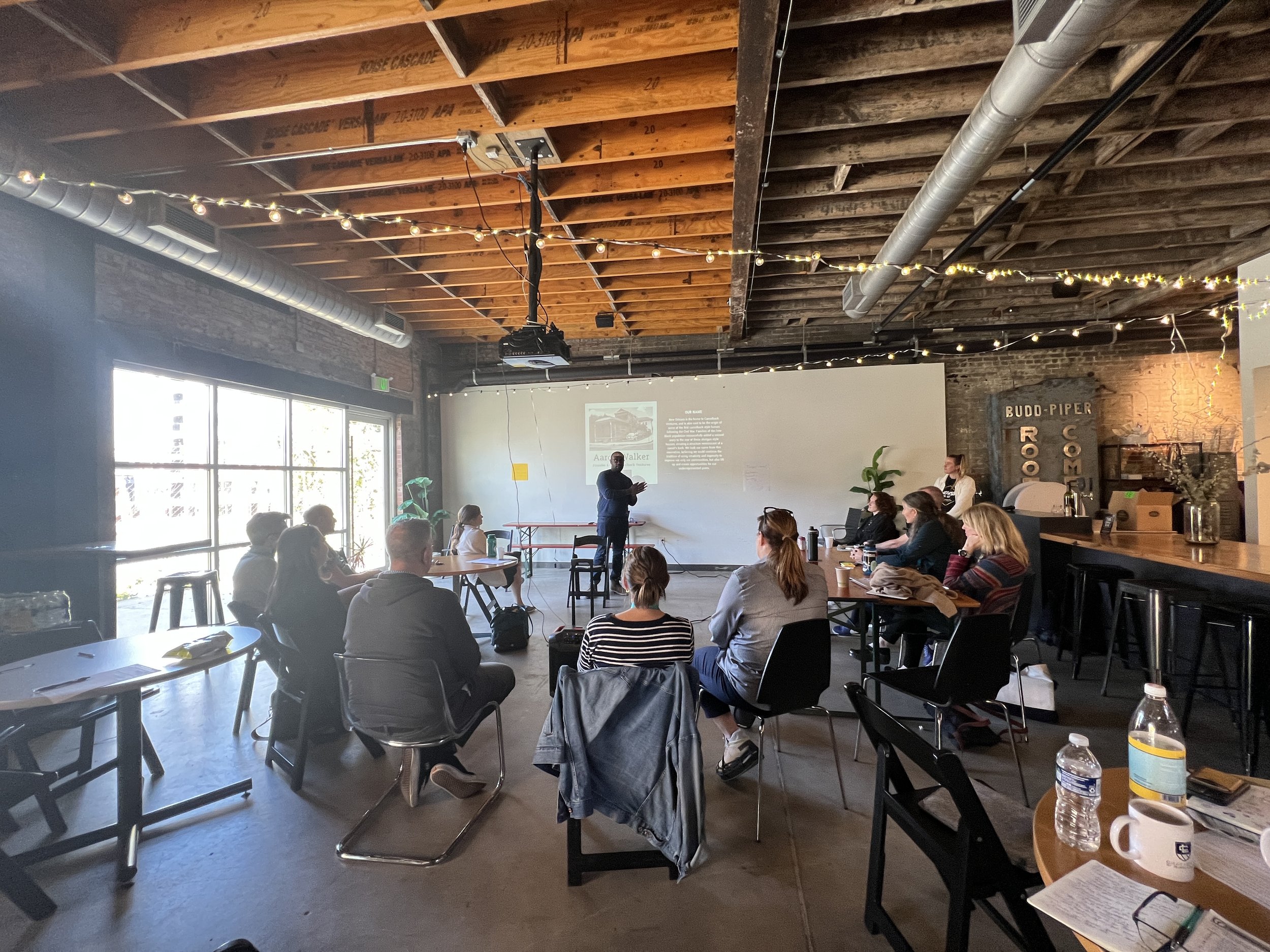Meet the Capital Collaborators: Jesse Dixon + The Opportunity Trust
Why did you join the Capital Collaborative Cohort – what were you hoping to get from this experience?
At The Opportunity Trust, we hold a core value that states: "We believe change is only effective and sustained when led by those who are impacted. We commit to follow and invest in the leadership of families and children who are enduring educational inequity and those willing to challenge the status quo." As a relatively new organization with an intermediary model, we are in the process of figuring out what it concretely means to live into these principles while ensuring that the organizations we support are having measurable regional impact.
What session or moment during the Cohort changed one of your beliefs?
In one of the sessions where Camelback Fellows were sharing their experiences, the concept of “Allyship vs. Co-conspirator” came up to describe the difference between being a passive supporter of BIPOC-led organizations versus a proactive agent of change on behalf of BIPOC-led organizations to transform the inequitable funding practices of philanthropy. This key distinction encapsulated an emerging shift I was feeling from responding to this cohort experience with a “business as usual but more thoughtful/mindful of race-based implications” mindset, to a position of making strategic moves to radically shift power.
What advice do you have for White-identifying funders about their equity journeys?
First and foremost remember: "It is not your money." Find ways to learn the uncomfortable truths that BIPOC leaders can share about your grantmaking practices and grantor-grantee interactions that are doing harm. The fact that these harms are unintentional does not give us a pass on taking bold steps to reduce that harm.
Secondly: Be bold. There is a 'zone of proximal acceptable risk' when it comes to the fights we can fight and the personal risk that comes with calling out an unjust practice or making a strong recommendation for a shift in how funding strategies are made. Our fear of risk is usually much larger than the negative consequences that would come from the worst-case scenario of taking that risk.
Capital Collaborative Summit 1 in Durham, North Carolina
What next steps are you taking to shift power in funding?
Through this cohort experience, I have learned so much. Although we're technically finished, I plan to continue applying what we've been working on in a few different ways.
First and foremost, in my daily work as a funder. I had been so focused on centering racial equity in what we fund, I hadn't given enough consideration to how we fund. How we collect and consider data, how we meaningfully engage students and parents as decision-makers, and how we support BIPOC leaders. I am proud that the majority of grantees we support at The Opportunity Trust are BIPOC-led; and, I have grown a lot in understanding how we can best support these organizations.
I look forward to applying those learnings to my future work in philanthropy.
The Capital Collaborative by Camelback Ventures works with White funders and social impact investors who want to deepen their individual and organizational commitment to racial and gender equity in philanthropy — but may not know how. You can learn more about how to get involved by submitting an interest form for the Capital Collaborative’s next cohort or signing up for the newsletter.




